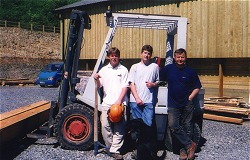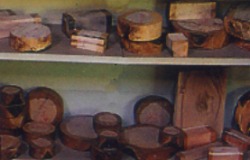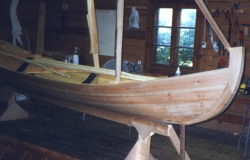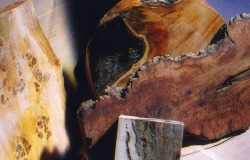Our Director has been involved in the forestry and timber
industries for over 28 years and has traveled all over the world to see how
other countries and cultures value and care for their forests whilst making
effective and sustainable use of forest products. We have much to relearn in
this country but it is encouraging to see that there are many professionals
making great efforts to safeguard the long term survival of our woodland
resources and habitats by sustainable and efficient management practices that
embrace new and old ideas as appropriate.

The long term survival of woodlands depends to a large extent
on viable woodland and timber economies and is enhanced by adding value close to
the source of the raw materials. YOU can make a significant contribution to this
mission by supporting local craftsmen and processors, buying their products, and
finding out more about real wood and sensible woodland management. This will
help the local economy and reduce transportation.

Demand real wood whenever possible, reject chipboard and
particleboard with plastic wood effect skins (The manufacture of which consumes
vast amounts of energy and uses some very unfriendly glues).
Real wood may cost more initially but will last and last. The
cost per year will in many cases be far less when using real wood.
An oak ship's timber from the 1500's could and has become
someone's dining table in the year 2000 after supporting a farm house roof for
hundreds of years! 
Oak you buy today to make into a table, could still be in your
descendants household as a table, bed, shelf, bowls, or some curio in the year
2750 not so likely your chipboard based, whatever!
Your solid ash oak or
beech floor could become someone's doors, or their table etc.
Not so with laminate floors cheap or expensive. If you can,
buy real wood and support your local craftsman, he could be
the next Chippendale.

If you can, buy real wood and support your local craftsman, he
could be the next Chippendale. |